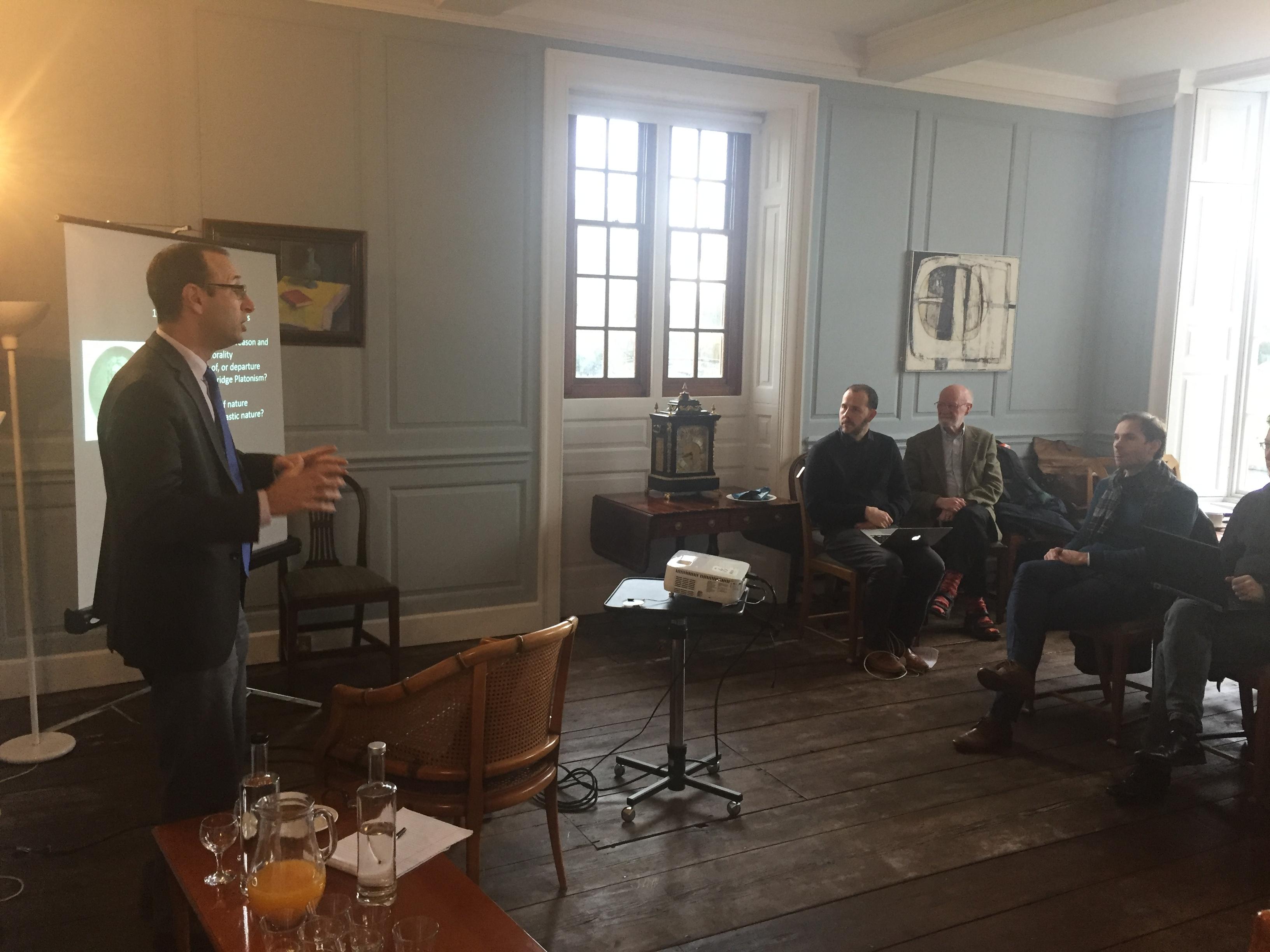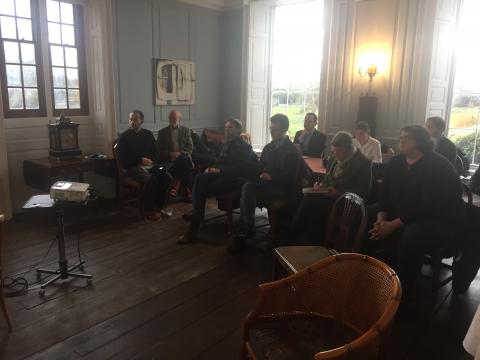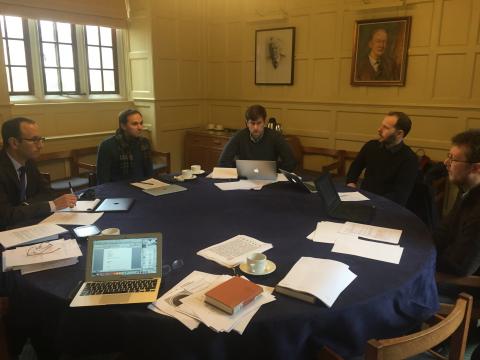
Submitted by Administrator on Mon, 04/06/2018 - 22:40
Whichcote and Shaftesbury
Thirkill Room, Clare College
15.01.2018
 In the morning seminar Dr Mark Burden (Bristol) discussed the textual questions surrounding Whichcote’s works. James Deotis Roberts, Sr., From Puritanism to Platonism in Seventeenth Century England (The Hague, 1968) views Whichcote as the leading figure of the Cambridge Platonists. Dr Burden offered a number of reasons for challenging the thesis of Roberts. Whichcote’s writings were all printed posthumously, based on manuscripts of uncertain authorial integrity, and subjected to considerable editorial intervention and restructuring; the generally-accepted ‘best’ text is the 4-volume Works (Aberdeen, 1751), but Dr Burden has expertly shown that this publication is an amalgam of two separate strands of Whichcote editorial practice, represented by the London editions of 1698 (the Select Sermons) and 1701-7 (the Select Discourses), which differ greatly in structure and content. A major problem for the project is determining where the sermons were given. There is reason to think that many were given in St Lawrence Jewry, but how many were given in Trinity Church in Cambridge?
In the morning seminar Dr Mark Burden (Bristol) discussed the textual questions surrounding Whichcote’s works. James Deotis Roberts, Sr., From Puritanism to Platonism in Seventeenth Century England (The Hague, 1968) views Whichcote as the leading figure of the Cambridge Platonists. Dr Burden offered a number of reasons for challenging the thesis of Roberts. Whichcote’s writings were all printed posthumously, based on manuscripts of uncertain authorial integrity, and subjected to considerable editorial intervention and restructuring; the generally-accepted ‘best’ text is the 4-volume Works (Aberdeen, 1751), but Dr Burden has expertly shown that this publication is an amalgam of two separate strands of Whichcote editorial practice, represented by the London editions of 1698 (the Select Sermons) and 1701-7 (the Select Discourses), which differ greatly in structure and content. A major problem for the project is determining where the sermons were given. There is reason to think that many were given in St Lawrence Jewry, but how many were given in Trinity Church in Cambridge?
Dr Burden then led a reading of A sermon on Romans 1:19-20 from the 1751 collection. The Platonism of the sermon is quite evident, yet it is much more ‘practical’ and less speculative than the work of Cudworth, Smith or More.
In the afternoon Professor Michael Gill (Arizona) gave a paper on Shafesbury and Whichcote. He started by considering the view of Cassirer that Shaftesbury and Brett that Shaftesbury was the inheritor of the Cambridge Platonists. He contrasted this with the opinion of those who see Shaftesbury as representing a quite different strand of thought: the sentimentalism of Hutcheson or even Hume. Professor Gill concluded by arguing that Shaftesbury was correctly viewed by Cassirer as the inheritor of the Cambridge Platonists, and he concluded his paper with reflections on the proto-Romantic idea of nature in Shaftesbury.

